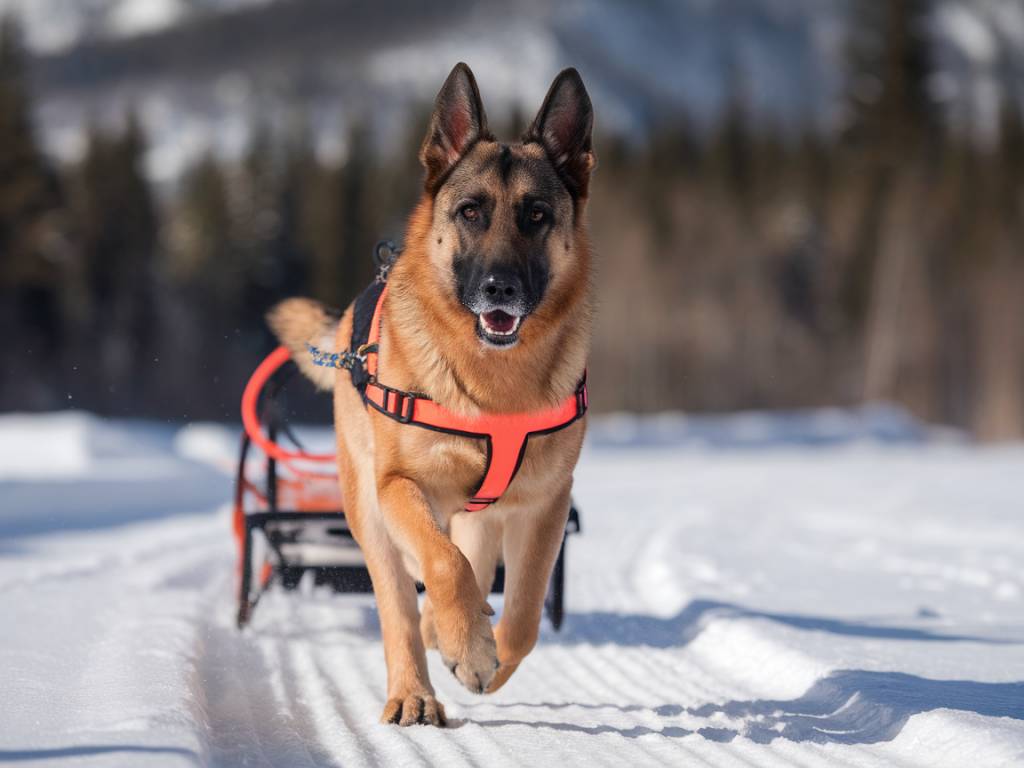understanding the nutritional needs of active and working dogs

understanding the nutritional needs of active and working dogs
« `html
Importance of Nutrition for Active and Working Dogs
Active and working dogs have unique nutritional needs that differ significantly from those of average pets. Whether your canine companion is a herding dog, a hunting partner, or a loyal runner alongside you, understanding these needs is crucial to ensure their health, energy, and longevity. These dogs are not just pets; they are athletes, and like any athlete, they require a diet that supports their demanding lifestyles.
Understanding Energy Requirements
The energy requirements of active and working dogs are significantly higher than those of less active dogs. Energy needs are generally calculated based on the Resting Energy Requirement (RER) and multiplied by an appropriate factor based on activity levels. For instance, search and rescue dogs, sled dogs, and military working dogs can all require up to 2-5 times their RER.
The primary source of this energy should come from fats and proteins. Fats provide a concentrated form of energy, which is crucial for endurance, while proteins support muscle repair and growth, preventing fatigue and promoting overall health.
Macronutrients: Balancing Fats, Proteins, and Carbohydrates
For active dogs, the diet should consist of:
- Fats: They should comprise about 20-30% of the diet, providing a dense energy source. High-quality animal fats, fish oils, and flaxseeds are excellent sources.
- Proteins: Aim for at least 25-35% of their diet to be high-quality protein. Sources such as chicken, beef, fish, and eggs supply the essential amino acids needed for muscle repair and immune health.
- Carbohydrates: While not the primary energy source, carbohydrates are useful for quick-release energy. Ingredients like sweet potatoes, brown rice, and barley are good choices.
Essential Vitamins and Minerals
A balanced diet for an active or working dog must also include vitamins and minerals that support metabolic functions, bone health, and overall well-being.
- Calcium and phosphorus: Essential for bone and teeth health, especially in breeds prone to joint issues.
- Iron and zinc: Support immune function and maintain a healthy coat.
- Antioxidants such as vitamin E and C: Protect cells from oxidative damage, reducing the risk of certain diseases.
Hydration: A Key Element
Water is perhaps the most critical nutrient, yet it is often overlooked. Active and working dogs have increased fluid requirements, especially in warm climates or during intense exercise. Ensure constant access to clean, fresh water, and consider electrolyte solutions for dogs engaged in prolonged activities.
Along with water, moist diets or adding a little broth to dry food can help maintain hydration levels.
Feeding Schedules and Portions
Active dogs benefit from multiple small meals throughout the day, which helps maintain energy levels and digestion. A common practice is to feed at least twice a day, allowing ample time for digestion before and after exercise.
The portions will vary based on the dog’s size, breed, activity level, and type of work they perform. Adjustments should be made based on their weight, energy, and performance, ensuring they receive sufficient calories without excess, which could lead to weight gain.
Avoiding Common Dietary Pitfalls
Feeding an unbalanced diet, offering too many treats, or failing to provide enough exercise are common pitfalls. Here are a few tips to avoid these issues:
- Do not rely solely on commercial dog foods; many may not meet the high energy demands of working dogs.
- Avoid overfeeding, which can lead to obesity, a common issue even in active breeds.
- Be cautious with bones, as they can pose a choking risk or cause digestive problems.
Assessing Your Dog’s Body Condition
An integral part of maintaining your dog’s health involves regularly assessing their body condition score (BCS). This helps ensure they are neither underweight nor overweight. Look for ribs that are easily felt but not visible, a tucked abdomen, and a noticeable waist when viewed from above.
Consulting Specialists for Tailored Diets
Each dog is unique, and their diet should be tailored accordingly. Consulting with a veterinarian or a canine nutritionist can provide invaluable insights into designing a diet plan that meets your dog’s specific needs. They can test for deficiencies, suggest supplements, and monitor your dog’s health over time.
Conclusion: Prioritizing Nutritional Health for Active and Working Dogs
Active and working dogs give a lot to their handlers, whether it’s saving lives, herding livestock, or providing companionship during outdoor adventures. It’s our responsibility to give them the best nutritional foundation to perform at their best. Proper nutrition is key to supporting their energy levels, preventing injury, and ensuring a happy, healthy life. By understanding and meeting the nutritional needs of these exceptional canines, we ensure not only their well-being but also strengthen the invaluable bond we share with them.
Remember, a happy, healthy dog starts with the right nutrition; this commitment is a lifelong journey that involves regular assessments and adjustments to their diet and lifestyle. For more personalized advice, always seek the guidance of professionals who can offer tailored recommendations based on your furry friend’s unique requirements.
Sincerely,
Lisa Tissed
« `





